A worksheet for students to practice giving attributes of 3D shapes.
Explore 3D Shapes and Their Properties
This worksheet allows your students to identify a variety of common 3D objects and their properties. There are two versions of the resource, which are outlined below:
- Version 1 – Students must name the shape, then record the number of faces, edges and vertices.
- Version 2 – Students must name the shape, then record the number of faces, edges, vertices, flat surfaces and curved surfaces.
The 3D shapes included in this worksheet are: cube, rectangular prism, cone, triangular pyramid, cylinder, square pyramid and triangular prism.
A Note About Cones and Cylinders
If you look at the answer sheet to this resource, you will notice the following properties are attributed to cones and cylinders:
- Cones – Faces (0), Edges (0), Vertices (0)
- Cylinders – Faces (0), Edges (0), Vertices (0)
If this seems strange to you, then please read on for an explanation!
In geometry, the following definitions apply for faces, edges and vertices:
- Face – A flat surface with straight edges.
- Edge – A straight line formed by two faces meeting.
- Vertex – The point where two or more edges meet.
According to these definitions, a cone has no faces, edges or vertices. It has one flat surface, one curved surface and one apex.
Similarly, according to these definitions, a cylinder has no faces, edges or vertices. It has two flat surfaces and two curved surfaces.
Download Your Preferred File Format
Use the dropdown menu next to the Download button to choose between the editable Google Slides and the quick-print PDF version of this resource.
As this resource includes answer sheets, we recommend printing one version of the entire file, then removing the student worksheets for photocopying.
Click below for more great resources to assist you with teaching 3D shapes to your students!
[resource:2651398] [resource:4635956] [resource:2663298]
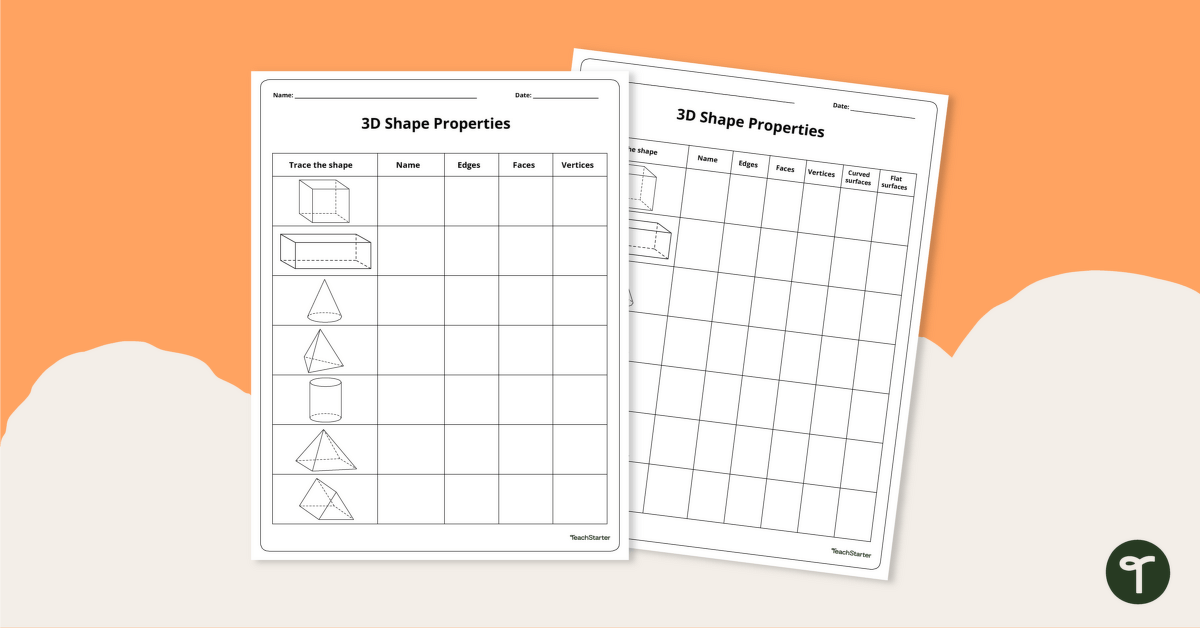

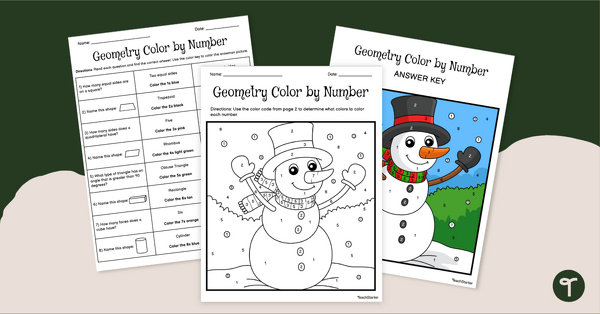
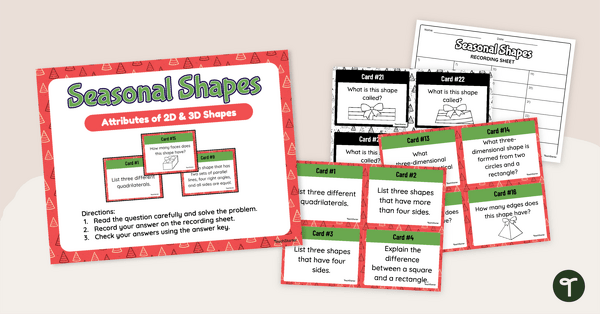
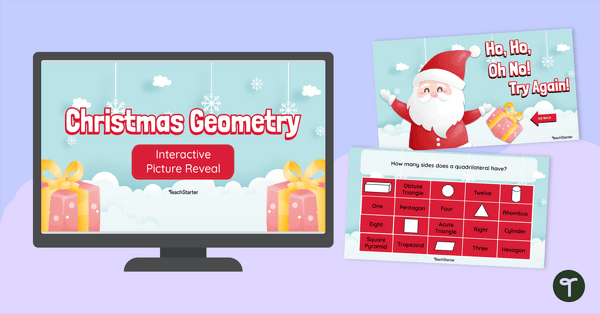
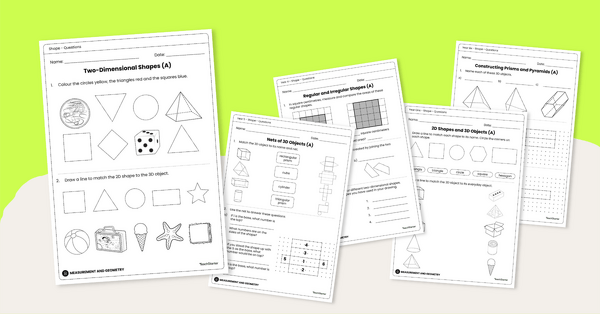
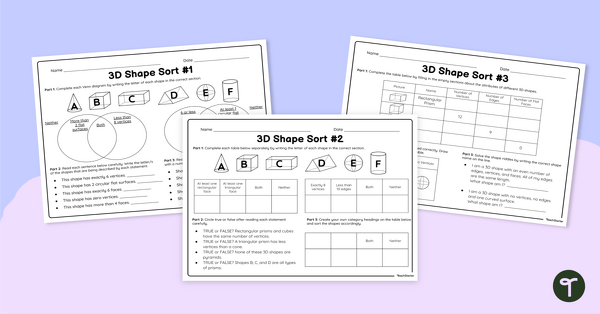
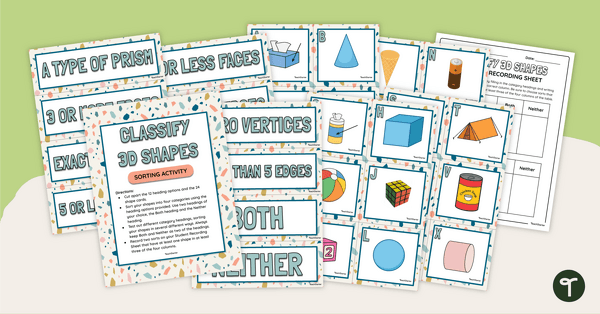
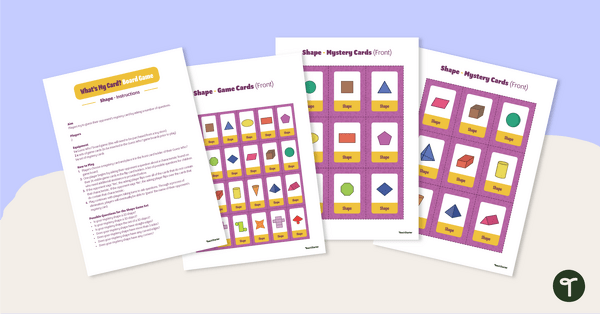
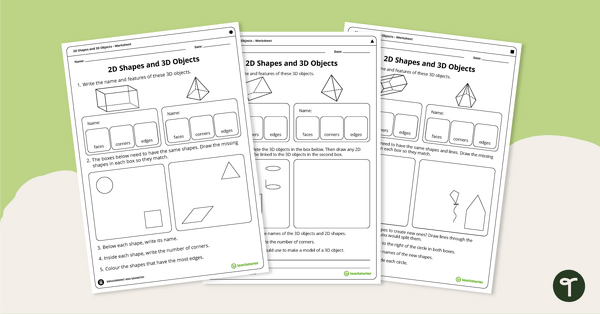
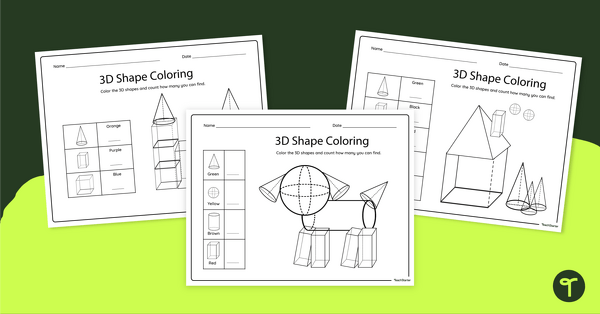
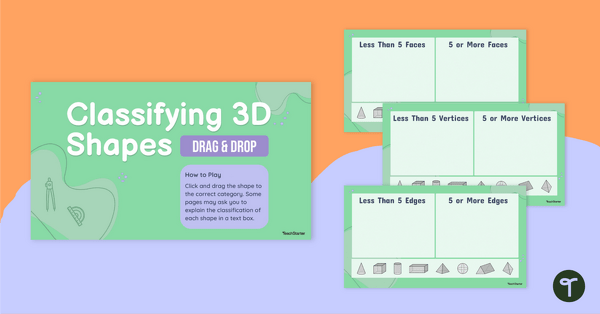
0 Comments
Write a review to help other teachers and parents like yourself. If you'd like to request a change to this resource, or report an error, select the corresponding tab above.